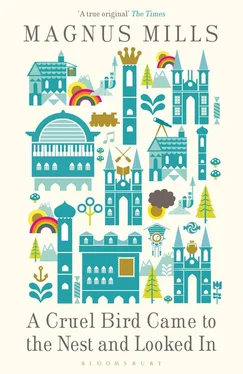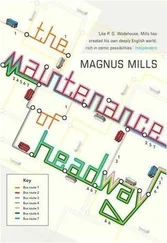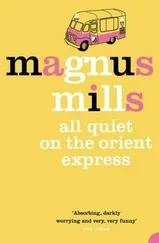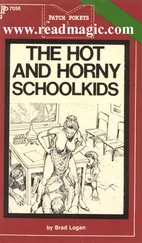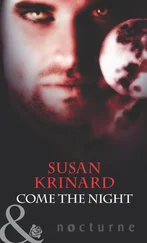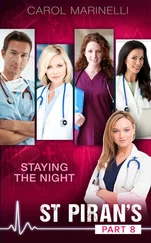Even so, the importance of the railways couldn’t be denied. We had already seen its effect in the empire: our clocks had been changed, our currency undermined and our population depleted; and yet Fallowfields only occupied one branch of a vast structure. The City of Scoffers had a reach which extended in many other directions too. How many realms, I pondered, now lay under its ‘protection’? Was there any limit to its policy of continual enlargement? Obviously not. The railways developed alongside the industries they were built to serve. Each created demands on the other, and the only solution was perpetual expansion.
The consequences could be seen every day at the central railway station. Hordes of migrants disembarked from countless trains, all clutching their ‘recruiting sixpences’. I soon got into the routine of wandering down to the station every morning to see if I recognised any of the new arrivals. I wasn’t sure who I expected to see: definitely not Whimbrel, but I wouldn’t have been surprised if Dotterel or Garganey had shown up, attracted merely by curiosity. In the event neither of them did, but there were plenty of other Fallowfieldsmen to make up the number. They were easily distinguishable because even though they all wore identical olive drab uniforms, they all looked completely different to one another. The purpose of a uniform, as I understood it, was to make everybody seem alike, but for some reason this precept didn’t apply to my compatriots. Some of them looked downright scruffy despite their uniforms being crisply pressed and brand new from the factory; others wore their uniforms in their own personal style; for example, with the cuffs rolled back or the collar turned up. Still others had been given outfits which were plainly the wrong size for them. One individual set his look off with a jaunty cap; another displayed a sprig of heather in his buttonhole. They were all typical Fallowfieldsmen, yet their collective appearance was hardly consistent with the notion of uniformity.
What these men had in common, of course, was their new destination. They all came in hope: some naturally to be disappointed; others to succeed. How many had been recruited unfairly I didn’t know, but in any case it was too late now. There was no going back without a train ticket, and you couldn’t get one of those without a travel permit.
If you wanted a job, on the other hand, this was unquestionably the place to come. The City of Scoffers was confident and unabashed. Above its proud buildings fluttered the hammer and anvil, symbol of its industrial might. The people went about with pocketfuls of money which they spent freely, thus generating even more wealth. The process was seemingly unstoppable.
Nevertheless, I sensed there was a chink in the armour. It was hardly anything, but it was there all right: a hidden uncertainty lurking behind the apparent success. Whimbrel had first drawn my attention to it weeks earlier when he mentioned the stream of visitors to the observatory. They all wished to peer through his telescope, and without exception they turned it to the west, never explaining why. Similarly, here in the city was the banner urging people to buy railway bonds and ‘resist the threat from the west’. It hung outside the headquarters of the CoS Railway Network, somewhere I’d have thought of as a veritable stronghold. Yet to my ears the appeal sounded almost fearful.
I glanced at this banner whenever I passed by, not least because I was astounded by the sheer size of it. Then, one bright and breezy morning, I noticed the wording had been changed. Now it simply said:
THERE IS NO ALTERNATIVE TO TRAINS.
I looked at the banner a second time, just to make sure I hadn’t read it wrongly; then I continued on my way, trying to work out just what lay behind this strident claim. Needless to say, there was an alternative to trains — namely, shipping — but as we were so far from the sea I allowed them this error. Moreover, if it was purely a matter of railways versus canals, then obviously the statement was correct: canals became obsolete as a means of transport the moment the first length of track was laid.
I got the impression, however, that an element of self-doubt had emerged about investing solely in railways: were they trying to convince themselves they hadn’t taken the wrong course? Well, if they had they should have thought about it years ago. As far as the City of Scoffers was concerned there was indeed no alternative to trains, but they didn’t need to shout it from the rooftops.
Still, there was little time to contemplate the subject further. The day of the first concert had arrived, so I hurried back to take up my post in the box office (I didn’t really expect any ‘returns’ but you never could tell). It had been decided that the festival would open with a matinée and an evening performance. Greylag was scheduled to present a symphony at three in the afternoon, followed by another at eight o’clock. It was a heavy workload, but he seemed not the slightest bit overawed.
Sanderling, by contrast, was very much on edge.
‘All those people streaming in,’ he said. ‘How can I possibly check their tickets and show them to their seats?’
‘Don’t worry about it,’ I advised. ‘Most people sort their seats out themselves.’
Fortunately for Sanderling, I was proved right. The matinée audience arrived punctually and remained in good order as they filed into the auditorium. I half-expected the occasion to be marked by a speech, delivered perhaps by Grosbeak or Merganser. They were both present, as was Gadwall, but apparently they weren’t interested in any flummery. The orchestra was already in position, and at precisely three o’clock the concert started without any announcements. Just as the lights dimmed I slid in at the back to watch Greylag in action. As usual he displayed perfect control over the orchestra. Interestingly enough, this first symphony matched exactly the verbal description he’d given me all those months before. It was a little unsettling to watch him perform it so flawlessly, knowing that all the while he held it in such disdain. When the music finally ended he gave a bow, the audience applauded and the concert hall emptied.
The second performance went equally smoothly, but afterwards Sanderling was completely exhausted and had to be revived with a bottle of wine. We’d discovered during our short time in the city that you could buy anything if you had the money, so we’d decided initially on this shared bottle.
‘I really ought to save up,’ he said. ‘I don’t intend to drink all my wages away.’
‘No,’ I said, ‘nor me.’
We agreed mutually that fairly soon we should consider rationing ourselves. In the meantime we would try to be as useful as possible, thereby ensuring our continued employment.
Following the introductory back-to-back concerts, the festival reverted to a more leisurely programme of two performances a week. Obviously, the orchestra needed to rehearse each piece thoroughly, but there was also time for Greylag to resume work on his own compositions. Occasionally I would enter the auditorium and recognise snatches I hadn’t heard since we were at the cake. It was gratifying to know that Greylag was still pushing at the boundaries, as befitted an appointed Professor of Music.
So it was that our existence gradually evolved into a regular cycle. The orchestra rehearsed, practised and performed; the audiences came and went; Sanderling and I sold tickets and took care of the concert hall as it filled and emptied again. At the end of each day we drank a bottle of wine and then went to bed.
I soon noticed that Sanderling was starting to take an active interest in the performances themselves. Often I saw him chatting to Greylag during recesses, and it turned out he was enquiring about the differing musical forms that were being showcased during the festival. After a while he commenced taking notes, firstly for his own clarification, but later for the enlightenment of others. On subsequent concert evenings he could be observed imparting his newly acquired knowledge to chosen members of the audience. Clearly he was enjoying his role as ‘front of house’. Each afternoon between two and four he slipped away, having presumably found somewhere quiet to revise his notes.
Читать дальше
